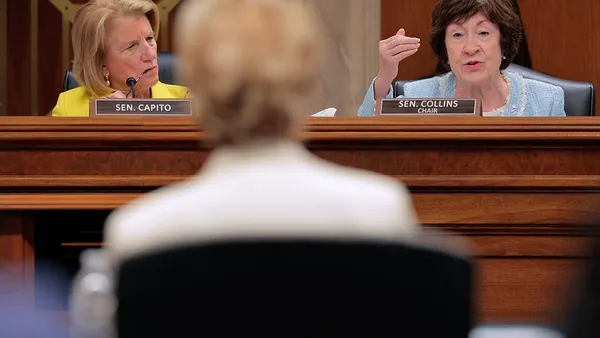Dive Brief:
- A Pennsylvania Department of Education policy change implemented at the beginning of the 2023-24 school year that extended the length of time some students would be eligible for special education services was struck down by the Commonwealth Court of Pennsylvania.
- Specifically, the ruling issued May 16 said the state's "New Age-Out Plan" was "void" and "unenforceable," because the education department didn't follow regulatory procedures for making the change. The state plan allowed some students with disabilities who had not already graduated to continue receiving special education services until their 22nd birthday rather than services expiring during the school year they turned 21.
- The federal Individuals with Disabilities Education Act requires school districts to make special education services available to students with disabilities from ages 3 through 21. States can provide special education services beyond age 21, although federal funding stops after that age.
Dive Insight:
The ruling stemmed from a lawsuit filed last year by the Pennsylvania School Boards Association, Pittsburgh Public Schools and other districts against the state education department.
In addition to not following regulatory procedures, the districts and school board association argued that the state education department did not give districts prior notice of the policy change, so they couldn't plan financially to serve additional students.
"This Court acknowledges that it affords the Department great deference in interpreting the statutes it is charged to administer, and its interpretations have controlling weight unless they are plainly erroneous or are inconsistent with the statute," the order said.
However, because the policy change is interpreted as a "binding regulation with the effect of law," it needed to go through formal rulemaking notice that includes the opportunity for public comments, the order said.
The state had made the change last summer after settling a class action complaint, which challenged the policy that only allowed students to access special education services until the end of the school year when they turned 21.
On the same day of the settlement agreement — Aug. 30, 2023 — the Pennsylvania Department of Education, in separate letters to parents and students and to local school administrators, explained that the new policy to go into effect six days later, included students who exited during or after the 2022-23 school year.
Nationally, only 0.42% of all school-aged students with disabilities were age 21 in the 2022-23 school year, according to U.S. Department of Education data.
About 435,000 students ages 14–21 were served under IDEA exited school during the 2021-22 school year, according to the Education Department's National Center for Education Statistics. Of those students, 75% graduated with a regular high school diploma, 14% dropped out, 10% received an alternative certificate, 1% reached the maximum age for special education, and less than 0.50% died.
States such as New York, Connecticut and New Hampshire have made adjustments in recent years to their policies on the maximum age of eligibility for special education. In some cases, changes were made to better align state and federal policy or in response to legal challenges.













